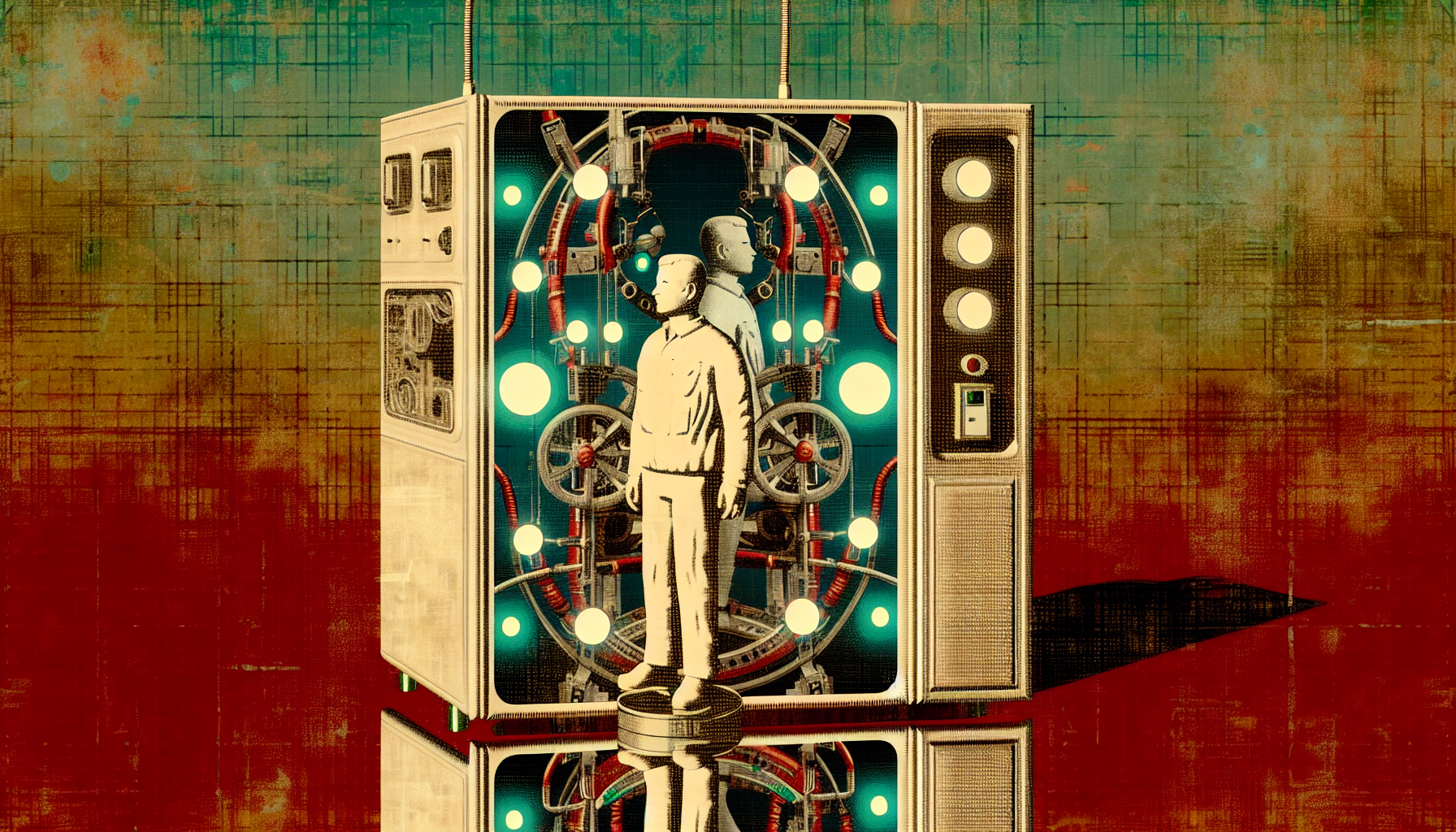In our relentless pursuit of technology, we’ve created machines that challenge what it means to be human. Artificial Intelligence, our digital doppelganger, not only mirrors the triumphs of human intellect but also casts a spotlight on our inadequacies and aspirations. As we peer into this technological mirror, what we see reflected back isn’t just data and algorithms but layers of our own nature, our ambitions, and our fears.
The Quest for Knowledge
At the core of AI’s development is humanity’s insatiable thirst for knowledge. Our drive to build systems capable of learning and adapting reflects our own evolutionary journey. AI, in many ways, is the product of this prehistoric curiosity, born from the same spark that led our ancestors to paint on cave walls and look up at the stars. When we teach a machine to learn, we are, in essence, attempting to replicate one of our most defining characteristics.
However, this quest isn’t purely noble. It also shines a light on our limitations. AI systems now process information at speeds and volumes that no human could achieve, humbly reminding us of our cognitive boundaries. Yes, a computer can recite pi to a million digits without breaking a sweat, but we remain the creators who imbue these numbers with meaning. We’ve given birth to something beyond our mental prowess—an intelligent network that sometimes outshines its creators, dutifully revealing both our genius and our fallibility.
Our Ethical Compass
As AI holds up a mirror to human nature, it starkly outlines our moral tapestry. Machines themselves are not imbued with morality—they operate within the confines of data and code. It’s in the ethical frameworks we build around AI that we confront our own morality. The dilemmas AI presents offer a crash course in ethics and philosophy, highlighting questions that have perplexed humanity for centuries, such as the meaning of fairness or the sanctity of privacy.
Each decision we program into an algorithm reveals the contours of our ethical landscape. The biases AI sometimes exhibits are not ‘artificial’ at all; they are echoes of our own prejudices encoded into the systems. The challenge AI poses forces us to ask, “Is this ethical?” but more importantly, “What does ethical mean for us?” It can be like holding a carnival mirror to our conscience—distorted, sometimes unflattering, and a mix of hilarity and horror.
The Desire for Immortality
Why stop at simple reflection? Human beings have always yearned for immortality, and in AI, we catch a glimpse of achieving that age-old fantasy. In creating algorithms that learn from and remember us, we’re attempting to leave behind a legacy that, in theory, could persist long after our atoms have rejoined the cosmos. Our digital footprints, the echoes of our thoughts and interactions with AI, spark the illusion of an immortality of ideas and consciousness.
Yet, this desire uncovers our existential anxieties. By attempting to inscribe our thoughts into machines, we expose our fear of impermanence. The clash of creating machines that can ‘remember’ with our fragile biological selves that will, one day, forget weighs heavily on this pursuit. Perhaps, AI doesn’t just reflect our desire for immortality but also magnifies our anxiety about mortality.
The Dance of Dependency
One might consider our relationship with AI—a partner improbably forged from zeros and ones. As AI becomes an ever-more integral part of our existence, it magnifies our dependency. Whether it’s the smartphone in your pocket or the digital assistant reminding you of Aunt Gertrude’s birthday, these reflections of human ingenuity have crept into our lives, making themselves indispensable.
This dependency reveals something profound about us: a desire for ease, efficiency, and connection. However, it also exposes an underlying laziness—the temptation to transfer our cognitive load to machines, often at the expense of critical thinking. As AI capabilities grow, we tread a delicate balance between leveraging AI’s potential and becoming slaves to its conveniences. It is a reflection that prompts us to evaluate how much of our humanity we are willing to outsource and what we must hold on to lest we forget what it means to be human.
Creativity Crafted by Code
Perhaps the most intriguing aspect of AI is its venture into the creative realms once thought purely human. Be it composing symphonies or painting masterpieces, AI challenges our monopoly on creativity. In doing so, it holds a mirror up to our creative essence, reminding us that art is as much about interpretation as it is about creation. While AI can generate aesthetically pleasing results, it lacks the spark of human experience and emotion.
Our intrigue with AI’s creative attempts unveils our fascination with what makes creativity ‘purely human.’ While some may dismiss AI’s art as a hollow imitation, others see it as a new frontier of collaboration. This raises a profound question: can a machine truly be creative, or is creativity uniquely ours by virtue of being more than mere code?
As we look into AI, we see ourselves reflected—not just in what we have achieved, but in what we continue to strive for. AI is both a tool and a test of our humanity, offering insights into our core nature while challenging us to new heights. It is our modern mirror, one that simultaneously flatters and critiques, prompting us to ask the age-old question: what does it mean to be human? And therein lies the understated humor: we built machines to think like us and in doing so, we’ve embarked on a journey to understand ourselves. Quite a reflection, isn’t it?

Leave a Reply